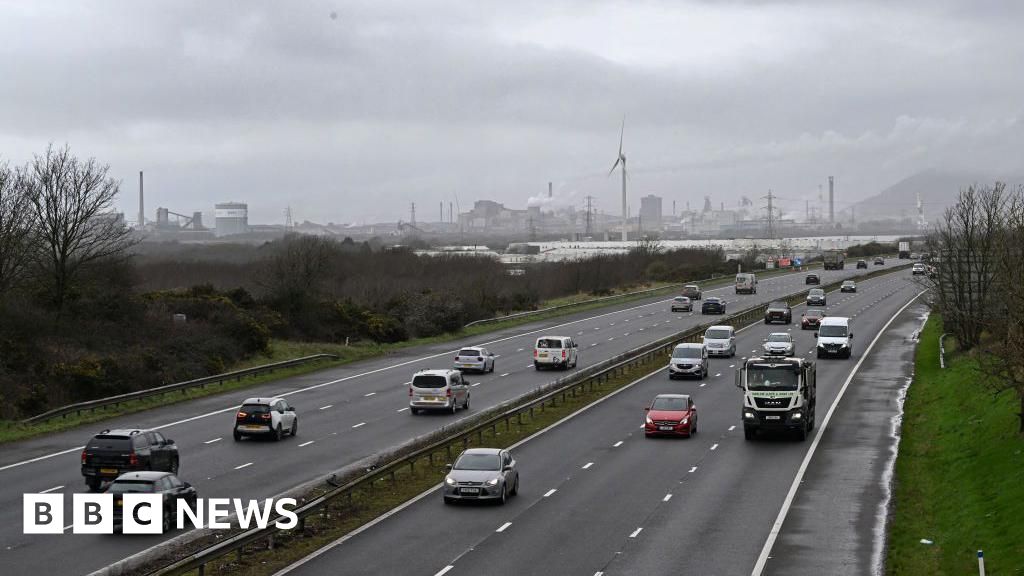Washington
CNN
—
Americans may be finding it a little tougher to land a job these days, but not so much in one field in which salaries are climbing fast and employers are offering robust perks.
Once a source of US economic resilience, the nation’s job market is now weaker than it has been in recent years, and it’s still unclear if it will soften further. In July, the labor market had the fewest available jobs since January 2021, according to government figures released Wednesday. Job growth has also slowed over the past several months, with employers adding fewer jobs than expected in August after logging a tepid 89,000 job gain in July, the Labor Department said Friday in a separate report.
But a few industries are defying the slowdown. The health care industry is still the leading job creator, though law enforcement is also seeing some momentum. Police departments and sheriff’s offices across are clamoring for new recruits after grappling with a sharp drop in applicants and a wave of retirements after George Floyd’s murder in 2020 caused many to be wary of working for a police force, recruiters told CNN.
US job openings have fallen substantially across the board since they reached a record high in March 2022 — down about 37% through July. But in state and local government, excluding education, openings have declined by just 7.6% during the same period, government data show. A sizable chunk of those openings are in law enforcement.
The average salary of a police officer climbed more than 37% in the first eight months of this year compared to the same time last year, according to ZipRecruiter data provided to CNN. That’s a recent sign of strong demand for police officers, because from 2022 to 2023 the average salary for policing jobs rose by roughly 8%.
“Police departments are trying hard to make the role more attractive after suffering a recruitment and retention crisis,” said ZipRecruiter Chief Economist Julia Pollak. She added that there’s also been a huge spike in job postings on ZipRecruiter listing “law enforcement” as a desired skill.
While a police officer may be a steady job, it’s important to note that it usually requires a months-long training process (typically paid), as well as an extensive background check.
Solid benefits and job security
The police department in the Phoenix suburb of Mesa dealt with the same hiring challenges in 2020 as other departments across the country. But it turned that situation around by increasing pay and making the application process much smoother, Mesa Police assistant chief Ed Wessing told CNN.
The Mesa Police Department also advertises another enticing incentive: After working as a municipal employee for 20 years, the city provides workers medical insurance benefits for life. That perk was discontinued in 2009 when Mesa was forced to make some budget cuts but it was brought it back in 2023 “to recruit and retain talented employees who want to build a career in the public sector,” the city said in a release.
“When our recruiters are talking with prospective applicants, that’s one of the things that we highlight right away,” Wessing said. “That’s really drawn a lot more people back into looking at Mesa versus going to the departments at neighboring Gilbert, Scottsdale, Chandler, Tempe and Phoenix. That’s been a huge benefit that the city did, which has helped us in our recruiting efforts.”
He added that whenever the broader economy hits a rough patch, “folks start to look to government positions that offer job security, like a police officer.”
The pipeline of going from the military to a police force has become more common.
Data provided to CNN from Hire Heroes USA, a nonprofit job placement agency for veterans and their spouses, show that jobs in “safety, security and law enforcement” have been one of the top categories for clients in recent years. Johnathan Severs, director of client programs at the firm, said “from the ground level, there’s absolutely been an increase” in hiring for law enforcement roles among clients this year.
And there’s another sign of strong demand: sign-on bonuses.
After serving 25 years in the US Army as a petroleum supply specialist, Ramonedward Bayer, 44, of Colorado Springs, Colorado, decided this was the year he would retire. That meant hitting job search market by writing up a resume and attending job fairs, only Bayer wasn’t exactly sure what kind of job he wanted. He said a Seattle Police Department recruiter had piqued his interest. Bayer started the police officer application process with some reservations but eventually became convinced he was doing the right thing.
“I wasn’t even interested in the police. It wasn’t really on my radar,” Bayer said. “I’m a person of Filipino background, and I remembered when I went to a Filipino community event, I saw how the officers were interacting with the people within the community, and how the community wanted them there. It just really motivated me to to continue with the process and finish it.”
Bayer said he was offered a $7,500 sign-on bonus and financial assistance to relocate to Seattle.
Pollak of ZipRecruiter said workers don’t usually pivot to law enforcement from a completely unrelated career. But that could change if the job market keeps sliding.
“We’re creatures of habit, so we tend to stay put and not push ourselves out of our comfort zones, unless we have to. And with hiring slowing in so many industries right now, that is prompting people to explore other kinds of opportunities, opportunities that provide paid training,” she said.










